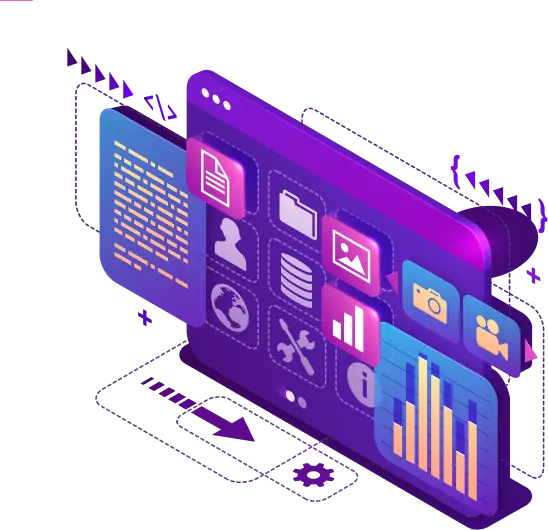Mastering the Lifecycle: How Contract Management Software Streamlines Every Phase
Contracts are the backbone of business operations, whether for small companies or multinational corporations. From vendor agreements to employee contracts, managing these documents is no easy feat. It’s a complex process that demands precision, organization, and attention to detail. That’s where technology steps in, particularly contract management software, to simplify the entire lifecycle and help businesses avoid common pitfalls.
Understanding the Contract Lifecycle
Before diving into the benefits of digital tools, let’s break down the typical phases of a contract lifecycle. Whether it’s a service agreement or a lease, most contracts go through similar stages:
- Drafting – Creating the initial version of the contract.
- Review and Negotiation – Making adjustments and discussing terms.
- Approval – Getting all necessary sign-offs.
- Execution – Finalizing the contract with signatures.
- Storage – Keeping the contract in a safe, accessible location.
- Management – Monitoring, renewing, or terminating the contract as needed.
Each phase has its own challenges, and without proper management, things can easily slip through the cracks. That’s why more businesses are turning to contract management software to keep everything on track.
Drafting: Speeding Up the Creation Process
Drafting a contract from scratch can be tedious, but the right tools make this stage quicker and more efficient. Templates, automated clauses, and pre-approved language are just a few of the features that contract management software offers. Instead of writing everything from the ground up, legal teams can start with templates tailored to their needs, significantly speeding up the process and reducing errors.
Review and Negotiation: Keeping Track of Changes
Negotiations can often become a back-and-forth email chain that’s hard to track. With contract management software, revisions and edits can be made in a central, secure location, ensuring that everyone is on the same page. This eliminates the confusion that often arises when multiple versions of a contract are circulating.
Approval: Streamlined Sign-Off Process
Getting a contract approved can take days or even weeks, depending on how many stakeholders need to review it. Contract management software can streamline this process by notifying relevant parties, allowing them to approve or reject terms digitally. This speeds up the workflow and ensures there are no unnecessary delays.
Execution: Digital Signatures for Fast Finalization
Gone are the days when executing a contract meant printing, signing, and scanning documents. Digital signatures make this phase faster and more secure. Contract management software typically includes e-signature capabilities, so contracts can be finalized with just a few clicks, no matter where the parties are located.
Storage: Centralized, Secure, and Accessible
Physical filing cabinets are relics of the past. Contract management software provides centralized digital storage, making it easy to access contracts whenever needed. But it’s not just about convenience; secure storage means that contracts are safe from unauthorized access, loss, or damage. Plus, users can easily search for specific contracts using keywords, which is a huge time-saver.
Management: Tracking Renewal Dates and Compliance
Perhaps one of the most beneficial aspects of contract management software is its ability to track the status of a contract long after it’s signed. Automated alerts can notify users when a contract is up for renewal or requires renegotiation, helping businesses stay compliant and avoid unnecessary penalties. This proactive approach ensures that important deadlines are never missed.
How Contract Management Software Streamlines Each Phase
1. Automation Reduces Manual Work
One of the biggest perks of using contract management software is automation. The software automates repetitive tasks such as sending out reminders, generating reports, or filling out templates. This not only saves time but also reduces the risk of human error, which can be costly in contract management.
2. Improved Collaboration and Transparency
Collaboration is key in contract management, especially when multiple departments or external parties are involved. Contract management software allows teams to collaborate in real-time, ensuring that everyone has the most updated version of the document. Transparent workflows mean that users can see who has reviewed, edited, or signed a contract at any stage of the process.
3. Enhanced Security and Compliance
Contracts often contain sensitive information, so security is crucial. Contract management software ensures that documents are encrypted and access is restricted to authorized users. Moreover, compliance features allow businesses to adhere to regulatory requirements effortlessly, providing peace of mind.
Why Businesses Need Contract Management Software
Businesses are no longer asking “if” they should use contract management software; they’re asking “which one” they should choose. With so many benefits, it’s easy to see why this tool is essential for modern companies. By streamlining the entire contract lifecycle, businesses can improve efficiency, reduce costs, and focus on growth rather than getting bogged down in paperwork.
Choosing the Right Software for Your Needs
When selecting contract management software, it’s essential to look for features that align with your specific business needs. Some may require robust AI tools for analytics, while others might prioritize security features. Ensure that the software integrates well with your existing systems to make the transition as smooth as possible.
The Future of Contract Management
As technology advances, contract management software is set to become even more sophisticated. We can expect more AI-powered features that help analyze data, predict contract trends, and offer insights that were previously unimaginable. For businesses, this means an even greater level of efficiency and accuracy in managing contracts.
Conclusion
Mastering the lifecycle of contracts is no small feat, but it’s essential for smooth business operations. Fortunately, contract management software has made it easier to navigate each phase—from drafting to management. By adopting digital solutions, businesses can enhance productivity, improve collaboration, and ensure that nothing slips through the cracks. In the fast-paced business world, efficiency is everything, and this software is a step in the right direction.
FAQs
- What is contract management software? Contract management software is a digital tool that helps streamline the entire contract lifecycle, from creation to renewal, making the process more efficient and secure.
- How does contract management software improve collaboration? It allows teams to work on contracts in real-time, ensuring everyone is working on the most updated version and can easily track changes and approvals.
- Can small businesses benefit from contract management software? Yes, small businesses can benefit significantly from automated workflows, secure storage, and timely reminders, all of which help in managing contracts efficiently.
- Is contract management software secure? Most platforms offer robust security features like encryption, access control, and audit trails to ensure that contracts are protected from unauthorized access.
- What features should I look for in contract management software? Look for features like automated workflows, e-signature capabilities, secure storage, and integration with existing business systems for seamless operations.







